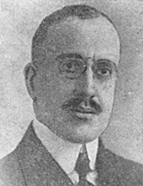

These considerations earned António Ferrão the attention and praise of the renowned Lusitanian scholar Georges Le Gentil, who highlighted Ferrão's historiographical connections with Fueter and the Revue de Synthèse Historique. Ferrão's methodology focused primarily on synthesis before engaging in detailed historical analysis, and he advocated that synthesis should precede "the political, social, economic, scientific, religious, and moral interpretation of facts." In 1927, Le Gentil even described him as "one of the masters of Portuguese science” (Georges Le Gentil, "Bibliographie", Bulletin Hispanique, vol. XXIX, no. 2, April-June 1927, pp. 228-229).
Le Gentil's main focus on António Ferrão came in 1920, when, in the broader context of "The Intellectual Movement in Portugal," he devoted seven pages to the "new direction of historical studies introduced by Fidelino de Figueiredo" and six pages to "Ferrão and diplomatic history." In the latter, Le Gentil recalls a time when Portuguese historians lacked the assistance of professional archivists and points out how the absence of comprehensive manuscript catalogues (whether printed, published, or lacking indexes) hindered their work. He notes the exception of the Academia das Ciências de Lisboa and the Arquivo Histórico [Historical Archive], citing Anselmo Braancamp Freire and António Baião’s efforts to combat these shortfalls. Interestingly, Le Gentil claims that Heinrich Schaefer, author of Geschichte von Portugal, was a disciple of Ranke, and that in 1914, Ferrão completed the work on the Notícia dos manuscritos [Notice of the Manuscripts] of the Viscount of Santarém (1827). In a Europe still deeply scarred by war, Georges Le Gentil valued Ferrão's advocacy for mass education as a means of preventing the resurgence of the disastrous nationalisms and imperialisms that had ravaged the continent (Idem, "Le mouvement intellectuel en Portugal", Bulletin Hispanique, vol. XXII, no. 1, January-March 1920, pp. 108-110).
